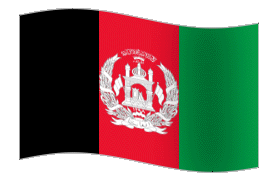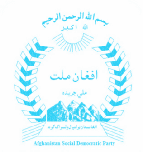Hope and Challenge
Ajmal Shams
South Asia Magazine (April 2014)
This year the beginning of spring in Afghanistan will also be the beginning of the end for President Karzai’s almost 12 years of rule due to upcoming presidential election scheduled on 05 April 2014. Afghan constitution permits only two terms in office for the same president, which President Karzai is about to complete in few weeks time. One cannot overemphasize the Significance of this upcoming presidential election due to several considerations. First and foremost, it will be the first time ever in Afghan history that power will be transferred peacefully from one elected president to another. Second, the timing of this election is highly crucial. All international forces shall be leaving the country by the end of 2014. The enduring presence of US forces that will be instituted within the proposed Bilateral Security Agreement (BSA) is yet to be decided.
Peace talks with the insurgents, fight against rampant corruption, building of state institutions, accelerating the pace of reconstruction and providing a conducive environment for sustainable economic growth are some of the recurring themes in candidates programs and agendas. Foreign policy is another important area in which candidates are trying to show their capabilities to Afghan voters and international audience.
Being a young democracy that almost started from a scratch since the Taliban’s collapse
in late 2001, the dynamics of politics in Afghanistan are interesting and sometimes
fascinating. Twenty-
Due to lack of political parties having nationwide credibility, Afghans give more importance to personalities. Educated Afghans might still be interested in candidates’ agendas but this election is more about who the candidates are instead of what they offer to the nation. Thus the criteria for credibility is what are the personal profiles of candidates, past performance and what capabilities they and their teams can bring to deliver on their election promises.
The coming years will be decisive in addressing some of key challenges that are facing
the country now. The most pressing issue for the future leadership will be bringing
the much-
Relations with neighbors especially Pakistan and Iran are equally important for the future elected administration. A common desire of friendly relations can be sensed, however with alternative approaches and perspectives.
During the past twelve years of President Karzai’s rule the focus was more on crisis
management. The decade ahead is that of consolidating the gains already made in various
sectors. Afghanistan has been designated as one of the most corrupt nations of the
World by Transparency International. Improving Afghanistan’s international image
will be pre-
Bringing change in a post-
All Afghans are looking forward to the upcoming election with an eye of the wind of change for the better which will benefit the common man unlike the past decade which created millionaires and billionaires with little positive impact on the quality of life of average Afghan. The divide between the rich and the poor significantly widened. How this gulf can be bridged is something for the future administration to handle among plenty of other challenges.
With all eyes on the upcoming leadership, Afghans look at the election process with mixed feelings of hope and uncertainty. If everything goes well, the country will have an elected ruler in place with renewed vision and prioritized program for peace, stability and prosperity. Yet, the risk of election ending in a political crisis due to the complex political environment and the government bureaucracy’s purported intervention in favor of the candidate of its choice run high.
The future political and economic stability of Afghanistan, to a large extent, depends
on the efficiency, legitimacy and competence of the new leadership. As of now, three
candidates seem to have emerged as front-
President Karzai and his entire state machinery have a major onus on their shoulders.
There are concerns that both Karzai and his team might be using the state machinery
in favor of a particular candidate. If true, the credibility of election will be
jeopardized that will be a major blow to all prospects from the electoral process.
President Karzai must ensure free and fair election to go down in history as someone
who peacefully and smoothly transferred power to a legitimate successor. (Courtesy:
South Asia Magazine -
The writer is President of the Afghanistan Social Democratic Party well know as Afghan Millat National Progressive Party and is based in Kabul, Afghanistan.
دافغان ملت ملي مترقي ګوند

Afghanistan Social Democratic Party

Copyright © Afghan Millat 2007-